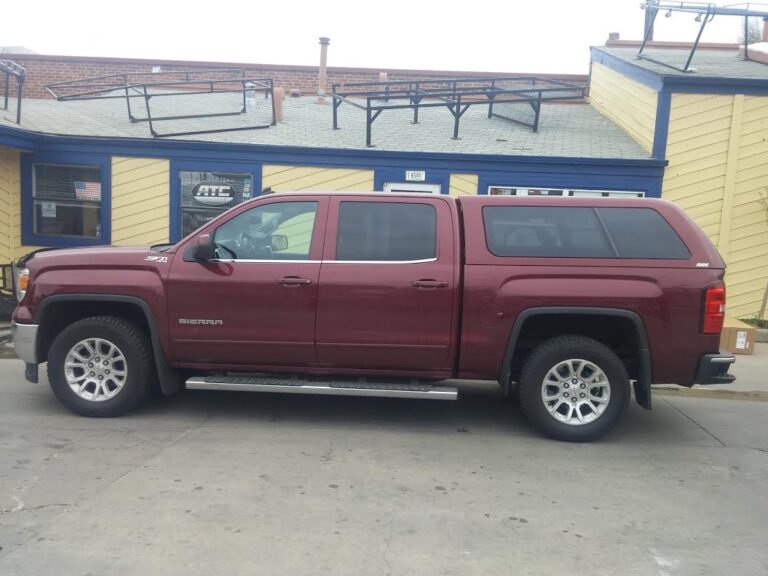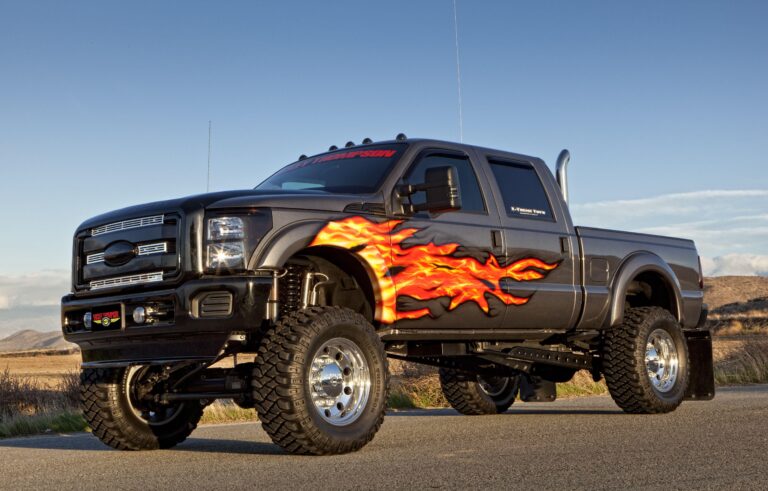Commercial Truck Value Report: Navigating the Market with Precision
Commercial Truck Value Report: Navigating the Market with Precision cars.truckstrend.com
In the dynamic and often volatile world of commercial transportation, understanding the true value of an asset is not merely a matter of curiosity; it is a critical strategic imperative. From owner-operators looking to upgrade their single rig to vast logistics companies managing fleets of hundreds, the "Commercial Truck Value Report" serves as an indispensable compass, guiding crucial financial and operational decisions. This comprehensive report, at its core, is a detailed assessment of a commercial vehicle’s fair market value, taking into account a myriad of factors that influence its worth in the current economic landscape. It’s more than just a number; it’s a meticulously compiled dossier that empowers stakeholders with the insights needed to buy, sell, finance, insure, and manage their valuable trucking assets with confidence and precision.
Understanding the Core: What Constitutes a Commercial Truck Value Report?
Commercial Truck Value Report: Navigating the Market with Precision
A Commercial Truck Value Report is a specialized appraisal document that provides an objective and data-driven estimate of a commercial truck’s worth. Unlike generic pricing guides, a robust value report delves deep into the specific attributes of a particular vehicle, providing a tailored valuation.
Key components typically found in a comprehensive report include:
- Vehicle Identification Details: This encompasses the Vehicle Identification Number (VIN), make, model, year of manufacture, and original specifications such as engine type and horsepower, transmission, axle configuration, gross vehicle weight rating (GVWR), and gross combined weight rating (GCWR).
- Mileage and Hours: Crucial indicators of wear and tear, these figures are meticulously recorded. For vocational trucks, engine hours can be as significant, if not more so, than mileage.
- Physical Condition Assessment: A detailed evaluation of the truck’s exterior (paint, body, frame, tires, wheels), interior (cab condition, electronics, seating), and mechanical components (engine, transmission, drivetrain, brakes, suspension). This often includes a grading system (e.g., excellent, good, fair, poor) and notes on any visible damage, rust, or wear.
- Maintenance and Service History: Comprehensive records of routine maintenance, major repairs, and component replacements significantly bolster a truck’s value, signaling reliability and responsible ownership.
- Specialized Equipment and Upgrades: Any auxiliary equipment (e.g., wet kits, power take-offs (PTOs), liftgates, specialized bodies like dump, tanker, or refuse), aftermarket additions (e.g., APUs, enhanced safety systems), or custom modifications are itemized and assessed for their value contribution.
- Accident History and Title Status: A clean title is paramount. Any prior accidents, flood damage, salvage titles, or other branding will drastically impact the valuation.
- Market Analysis: The report contextualizes the truck’s value within current market conditions, considering factors like supply and demand, recent comparable sales, regional economic trends, fuel prices, and prevailing freight rates.

The data for these reports is drawn from various sources, including proprietary databases of past sales, auction results, dealer transaction data, industry publications, and expert knowledge of professional appraisers.
The Indispensable Role of a Commercial Truck Value Report: Benefits for Stakeholders

The utility of a Commercial Truck Value Report extends across various facets of the trucking industry, offering tangible benefits to a diverse range of stakeholders.
- For Buyers: Armed with an accurate valuation, buyers can make informed purchasing decisions, ensuring they don’t overpay. It provides crucial leverage during negotiations and helps in budgeting for future maintenance or upgrades.
- For Sellers: A professional report enables sellers to set competitive and realistic asking prices, maximizing their return on investment while attracting serious buyers. It expedites the sales process by instilling confidence in potential purchasers.
- For Lenders and Financial Institutions: For entities providing loans or financing, the report is essential for assessing the collateral value of the truck, mitigating risk, and determining appropriate loan amounts and terms.
- For Insurance Companies: Accurate valuations are critical for determining appropriate coverage levels, calculating premiums, and processing claims fairly in the event of damage or total loss.
- For Fleet Managers and Businesses: These reports are vital for asset management, tracking depreciation for accounting and tax purposes, planning fleet replacement cycles, and making strategic decisions about expansion or downsizing. They contribute to accurate balance sheet reporting.
- For Legal and Dispute Resolution: In scenarios such as bankruptcies, divorce settlements, estate valuations, or insurance disputes, an independent, professional valuation report provides an unbiased and legally defensible assessment of asset worth.

Factors Influencing Commercial Truck Value: A Deeper Dive
While the components of a report are standardized, the actual value derived is a complex interplay of numerous variables.
- Core Specifications: The inherent quality and popularity of the truck’s make and model (e.g., Freightliner, Kenworth, Peterbilt, Volvo, International, Mack) play a significant role. Engine specifications (horsepower, torque, fuel efficiency, emissions compliance like EPA 2010 or newer), transmission type (manual vs. automated manual transmission (AMT)), and axle configurations (e.g., 6×4, 4×2) directly impact performance and demand.
- Mileage and Engine Hours: These are often the most immediate indicators of a truck’s life cycle. While high mileage typically correlates with lower value due to increased wear, a well-maintained truck with high mileage can still command a respectable price, especially if it’s a vocational vehicle where engine hours are more indicative.
- Physical and Mechanical Condition: Beyond aesthetics, the operational integrity of the engine, transmission, differentials, brakes, suspension, and tires is paramount. Any signs of major mechanical issues, excessive rust, or structural damage will significantly depress value. A clean interior and exterior also make a strong first impression and suggest care.
- Maintenance History: A verifiable, comprehensive maintenance log is a gold standard. It provides assurance that the truck has been properly cared for, mitigating risks for future owners. Conversely, a lack of records or a history of deferred maintenance can severely devalue a truck.
- Specialized Equipment and Upgrades: Features like auxiliary power units (APUs), custom sleepers, advanced safety systems (e.g., collision mitigation, lane departure warning), or vocational-specific equipment (e.g., specialized bodies, cranes, plows) can add substantial value, particularly if they align with current market demand.
- Market Conditions: The broader economic climate, freight rates, fuel costs, and supply-demand dynamics within the used truck market heavily influence values. A robust economy with high freight demand typically supports higher used truck prices. Regulatory changes (e.g., new emissions standards) can also impact demand for older models.
- Geographic Location: Regional demand, specific industry needs (e.g., logging in the Pacific Northwest, oil & gas in Texas), and even climate (e.g., rust concerns in northern states) can cause value variations across different areas.
- Accident History & Title Status: Any previous accidents, especially those resulting in major structural damage, can brand a truck’s title (e.g., salvage, rebuilt), leading to a significant devaluation and making it harder to sell or insure.
Obtaining a Commercial Truck Value Report: A Practical Guide
There are several avenues for assessing a commercial truck’s value, ranging from self-service tools to professional appraisals.
- DIY Methods (Initial Estimates): For a preliminary idea, online valuation tools offered by marketplaces (e.g., TruckPaper.com, Commercial Truck Trader), auction sites (e.g., Ritchie Bros., IronPlanet), and industry guides (e.g., NADA Used Car Guide – which also covers commercial trucks, Black Book) can provide ballpark figures. These methods are useful for quick estimates but often lack the granularity to account for specific truck conditions or unique features. They rely on broad averages and may not reflect real-time market nuances.
- Professional Appraisals: For critical decisions like financing, insurance claims, legal matters, or significant purchases/sales, a professional, independent appraisal is highly recommended.
- Why they are superior: Professional appraisers possess specialized knowledge of the commercial truck market, conduct thorough physical inspections, utilize proprietary data, and provide an unbiased, defensible valuation report recognized by financial institutions and courts.
- What to provide: To facilitate an accurate appraisal, prepare detailed information including the VIN, complete spec sheet, comprehensive maintenance records, high-quality photos, and any documentation of upgrades or modifications.
- The Appraisal Process: This typically involves either an on-site physical inspection by the appraiser or a detailed desktop appraisal (based on provided documentation and photos). The appraiser then analyzes market comparables, adjusts for condition, mileage, and specific features, and compiles a formal report.
Maximizing Your Commercial Truck’s Value: Tips and Strategies
Proactive management and strategic planning can significantly impact your truck’s resale value.
- Proactive and Consistent Maintenance: This is the single most important factor. Adhere strictly to manufacturer-recommended service schedules. Regular oil changes, filter replacements, tire rotations, and preventive maintenance on major components (engine, transmission, differentials) will extend the truck’s life and signal reliability to future buyers.
- Maintain Detailed Records: Keep meticulous records of all service, repairs, and parts replacements. A complete, organized maintenance history folder is invaluable for demonstrating the truck’s care and can add thousands to its value.
- Address Minor Issues Promptly: Don’t let small problems fester. Fix warning lights, fluid leaks, or minor cosmetic damage as soon as they appear. Neglecting small issues can lead to larger, more expensive problems that significantly reduce value.
- Regular Cleaning and Detailing: A well-maintained appearance, both inside and out, creates a strong first impression. Regular washing, waxing, interior cleaning, and even detailing before a sale can make a truck stand out.
- Smart Upgrades: Invest in upgrades that genuinely enhance the truck’s utility, safety, or fuel efficiency, and appeal to a broad market. Examples include new tires (especially premium brands), APUs, updated safety technology, or driver comfort features. Avoid highly personalized or niche modifications that may not appeal to a wider audience.
- Strategic Selling: Timing your sale with market demand can be crucial. Research the best sales channels—dealerships, online marketplaces, auctions, or private sales—based on your truck type, desired price, and urgency.
Challenges and Considerations in Truck Valuation
Despite the benefits, truck valuation presents unique challenges.
- Rapid Depreciation: Commercial trucks, especially new ones, experience significant depreciation in their initial years. Understanding this curve is vital for financial planning.
- Market Volatility: The commercial trucking market is highly sensitive to economic shifts, freight volumes, fuel prices, and regulatory changes, leading to unpredictable value fluctuations.
- Niche vs. General Market: Highly specialized trucks (e.g., cranes, concrete mixers) might hold value well within their specific niche but can be difficult to sell quickly outside that market, potentially impacting liquidity.
- Data Accuracy and Completeness: Relying on incomplete or inaccurate data for DIY valuations can lead to significant discrepancies between estimated and actual market values.
- Subjectivity: While professional appraisers strive for objectivity, some aspects of condition assessment can involve a degree of subjective judgment, though this is minimized by experienced professionals using standardized criteria.
Representative Commercial Truck Value Ranges (Illustrative)
Understanding the typical value ranges for different types of commercial trucks can provide a helpful context for the information contained within a Commercial Truck Value Report. Please note that these are illustrative ranges and actual values vary drastically based on the specific factors discussed above (condition, mileage, engine, make, model, market conditions, etc.).
| Truck Type | Age Group (Years) | Typical Condition | Illustrative Value Range (USD) | Key Factors Influencing Value |
|---|---|---|---|---|
| Class 8 Sleeper | 1-3 | Excellent | $100,000 – $180,000+ | Engine HP, AMT, APU, Maintenance Records, Specs, Brand |
| 4-6 | Good | $60,000 – $100,000 | Engine HP, Transmission, Mileage, Condition, Emissions Compliance | |
| 7-10+ | Fair | $25,000 – $55,000 | Mileage, Engine Type, Major Repairs, Overall Mechanical Soundness | |
| Class 8 Day Cab | 1-3 | Excellent | $80,000 – $140,000 | Engine HP, Transmission, Mileage, Specs, Vocational Options |
| 4-6 | Good | $45,000 – $80,000 | Mileage, Engine, Maintenance History, Application (e.g., local haul) | |
| 7-10+ | Fair | $20,000 – $40,000 | Overall Condition, Rust, Operational Status | |
| Medium Duty Box | 1-3 | Excellent | $50,000 – $90,000 | Box Size, Liftgate, Mileage, Diesel/Gas, Brand |
| (Class 5-7) | 4-6 | Good | $30,000 – $50,000 | Engine, Transmission, Box Condition, Mileage |
| 7-10+ | Fair | $15,000 – $30,000 | Rust, Operational Condition, Major Repairs | |
| Vocational Dump | 1-3 | Excellent | $120,000 – $200,000+ | Axle Config, Engine HP, Transmission, Body Type/Capacity, PTO |
| (Class 8) | 4-6 | Good | $70,000 – $120,000 | Mileage/Hours, Body Condition, Frame Integrity |
| 7-10+ | Fair | $35,000 – $70,000 | Frame Rust, Mechanical Issues, Wear on Specialized Equipment |
Note: The cost of obtaining a professional Commercial Truck Value Report (appraisal) typically ranges from $300 to $1000+, depending on the complexity of the truck, the depth of the report required, and the appraiser’s location.
Frequently Asked Questions (FAQ)
Q1: How often should I get a commercial truck value report?
A1: For fleet managers, an annual report is beneficial for asset tracking and depreciation. For individual owner-operators, it’s advisable before buying or selling a truck, when renewing insurance policies, or for any major financial transactions (e.g., refinancing).
Q2: Can I do my own truck valuation?
A2: You can get an estimated value using online tools and comparing similar listings. However, for critical decisions involving large sums of money, legal matters, or financing, a professional, unbiased appraisal is highly recommended due to its accuracy and recognized authority.
Q3: What’s the difference between market value and book value?
A3: Market value (as determined by a value report) is the price at which a truck would sell in the current market, reflecting supply, demand, and its specific condition. Book value is the depreciated value of the truck on a company’s financial records, primarily used for accounting and tax purposes, and may not reflect its actual resale potential.
Q4: Do modifications always increase my truck’s value?
A4: Not necessarily. Modifications that enhance a truck’s utility, safety, or fuel efficiency (e.g., APUs, modern safety tech, or specialized vocational equipment) often add value. However, highly customized or purely aesthetic modifications might not appeal to a broad market and could even reduce its value to some buyers.
Q5: How does mileage affect truck value?
A5: Mileage is a primary factor in depreciation. Generally, higher mileage leads to lower value, as it indicates more wear and tear. However, a truck with very high mileage but an impeccable maintenance history can still command a reasonable price, as diligent care mitigates the risks associated with high operational hours.
Q6: What’s the typical cost of a professional truck appraisal?
A6: The cost for a professional commercial truck appraisal can vary significantly, typically ranging from $300 to over $1,000. Factors influencing the cost include the complexity of the truck, whether a physical inspection is required, the appraiser’s experience, and geographic location.
Conclusion
The Commercial Truck Value Report is far more than a mere financial document; it is a strategic asset in the intricate ecosystem of commercial transportation. By providing a clear, data-driven assessment of a truck’s worth, it empowers buyers to negotiate intelligently, sellers to price competitively, and all stakeholders to make informed decisions that optimize their investments. In an industry defined by heavy capital expenditure and constant movement, understanding the precise value of your rolling assets is paramount for sound financial management, risk mitigation, and sustained success. Embracing the insights gleaned from a comprehensive value report is not just good practice; it’s an essential element of navigating the market with precision and foresight.




